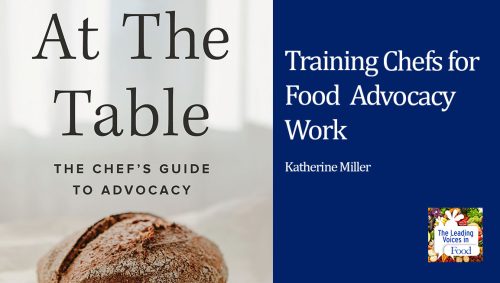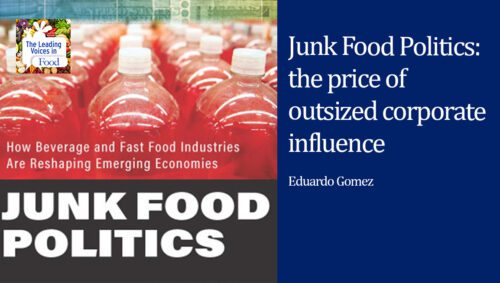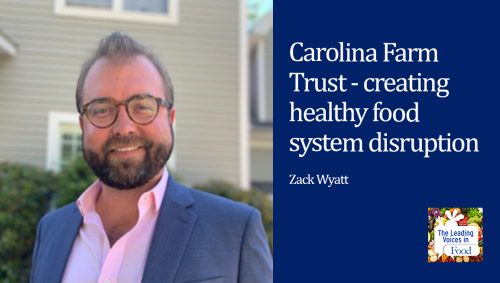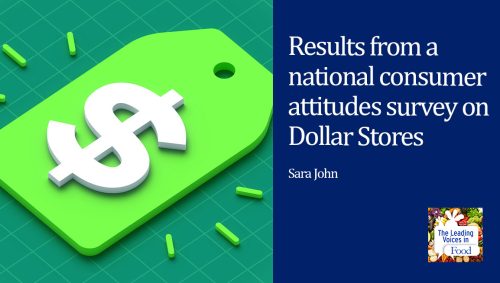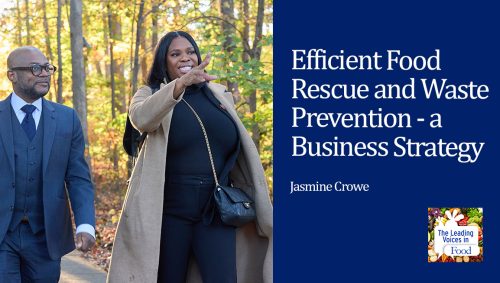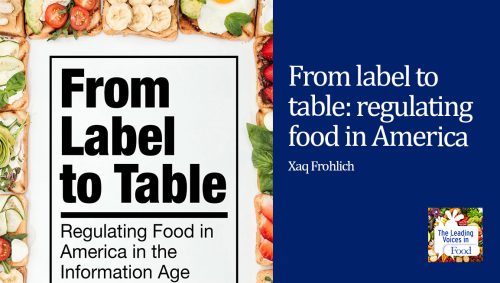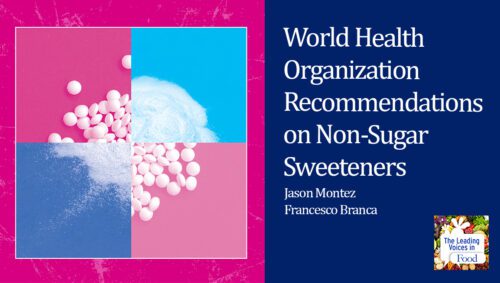The Leading Voices in Food
E127: Paarlberg Tackles Misinformation about Food We Grow and Eat
Today’s guest, Dr. Robert Paarlberg, is the author of a provocative new book entitled: Resetting the Table: Straight Talk About the Food We Grow and Eat. The book is presented as a clear-eye, science-based corrective, to misinformation about our food: how it’s produced, food companies, nutrition labeling, ethical treatment of animals, the environmental impact of agriculture, and even more.
Subscribe: Apple Podcasts | TuneIN | Google Podcasts | SoundCloud | PocketCasts | Radio Public
Tags: Advocacy & Food | Agriculture & Tech | Antibiotic Resistance | Community & Economic Development | Diet & Nutrition | Equity, Race & Food Justice | Food Insecurity | Food Policy | History & Food | Obesity |

Robert Paarlberg is adjunct professor of public policy at the Harvard Kennedy School and an associate at Harvard’s Weatherhead Center. He has been a member of the Board of Agriculture and Natural Resources at the National Research Council, a member of the Board of Directors at Winrock International, and a consultant to the International Food Policy Research Institute, the U.S. Agency for International Development, and the Bill and Melinda Gates Foundation. He is the author of Starved for Science, Food Politics, and The United States of Excess. He lives in Massachusetts.
Interview Summary
So Robert, The New York Times praised your book for – and I quote here – “Throwing cold water on progressive and conservative views alike.” What an accomplishment that is, and with an intro like that I can’t wait to talk to you today, so thanks so much for joining us. So let’s begin here, your new book highlights a number of dietary health shortcomings in America but you say these do not come from our farms or from farm subsidies. Can you explain, where do they come from?
Clearly we have a dietary health crisis. Only 1 in 10 Americans is getting the fruits and vegetables recommended and meanwhile we’re eating far too many ultra-processed foods with added sugar, salt, and fat, which is why 42% of adults are now clinically obese. I mean, that’s three times the level of the 1960’s and one result is approximately 300,000 deaths a year linked to diabetes, cardiovascular disease, and cancers. Now, some food system critics have tried to trace these problems back to the foods grown on our farms. That is, not enough fruits and vegetables and too much corn and soybeans and farmers in America do produce a lot of corn and soybeans but stop and think, nearly 60% of the soybeans are exported. So they never enter our food supply and more than a third of the corn is used to produce auto fuel. So, that’s out of our food supply as well. And we’ve used imports to make an abundance of fruit and vegetables, available in the marketplace. Half of our fruit is imported, one third of our vegetables are imported, often, off season when it’s too cold to grow these things in North America. Thanks to these imports, the per capita availability of fruit in the market today is 40% above the 1970 level and the per capita availability of vegetables is 20% above 1970. Actually, per capita, availability of broccoli today, is 13 fold what it was in 1970. So, what our farmers grow, is not the same thing as what consumers eat and very quickly, as for farm subsidies, they’re often criticized for making unhealthy foods, artificially cheap but they actually do just the opposite. We have to remember the purpose of farm subsidies is to increase the income of farmers and that is best done, it’s usually done, by making farm commodities artificially expensive, not artificially cheap. Farm programs make sugar, artificially expensive by keeping foreign sugar out of our domestic market, raising the domestic price by about 64%. We make wheat and wheat flour and bread artificially expensive, through a conservation reserve program that pays wheat farmers to keep their land in western Kansas idle for 10 years. And we make corn artificially expensive. It’s said, that we’re living with a plague of cheap corn, but it’s just not true. We have a renewable fuel standard, that takes a third of total corn production out of the food market, for uses, auto fuel, and that drives up the price of soybeans as well because soybeans and corn are grown on the same land.
So back to the question then, if the dietary problems don’t come from the things that you just mentioned and you make an interesting case there, where do they come from?
I put a lot of blame on food manufacturing companies, on retailers and on restaurant chains. These are the companies that take, mostly healthful commodities, grown on America’s farms and ultra process them, add sugar, add salt, add fat, turn them into, virtually addictive, craveable products and then they surround us with them, all day long and they advertise them heavily, including to children. I believe we are drowning in a swamp of unhealthy foods, produced not on our farms, but downstream from farms by these food companies. Now the food companies say, “Oh, well, unhealthy eating, we’re not responsible. It’s an individual eater’s responsibility, to decide what he or she puts in his mouth.” But I don’t buy that. I mentioned that obesity rates in the United States today, are three times the level of the 1960s. It simply isn’t true, it can’t be true, that American eaters are three times as irresponsible, as they were in the 1960’s.
Companies can’t be blamed, I don’t suppose, for trying to maximize sales of their products and trying to maximize their desirability. How does it become a problem with the food industry though?
If a shoe company sells us too many shoes that we don’t need or a toy company sells us toys we don’t need or an auto company sells us a fancy auto with features we don’t really need, that doesn’t become a public health crisis, but when food companies make products that are almost impossible for most consumers to resist, if they consume them then, in excess and it does become a public health crisis, that’s a different sort of problem. In a way, I don’t blame the companies because as you noted, they compete fiercely with each other and if anyone were to try to go first to offer product lines, that weren’t latent with excess sugar, salt, and fat they would lose market share. These companies actually need the government to step in and provide a common discipline on all of them. Either, in the form of excise taxes on sugar-sweetened beverages or regulations for, at a glance, nutrition guidance labeling on the front of the package or perhaps, restrictions on advertising food to children. If you look at the countries in Europe, 18 European countries have at least one of these policies in place. The continent of Europe has obesity prevalence, only half as high as that of the United States. So here, I think if we can learn something from Europe and use government policy to protect the companies from the kind of damaging competition that they’ve fallen into.
Given what you said about rates of obesity, it’s important for people in many countries of the world to just, eat less food and of course, eating less food creates problems for the industry. So, it seems like, on one hand, the government to say, “Well, listen, why don’t you require us all to gradually reduce the sugar in our products or the salt or the fat or whatever, so that we’re all on the same playing field.” People get calibrated to a lower level of these things and everything will be fine, but everything won’t be fine because if those foods become less palatable, people will eat less and the companies will suffer from that. So, my guess is that that’s why there’s no appetite, if you pardon the pun, from the companies to do this kind of thing and why there’s gonna have to be government regulation that overrides the company’s political interest or even litigation to help drive this, what do you think?
I’d like to see strong public policies. Whether you call it helping the companies to, avoid their worst instincts and protecting them from damaging competition or imposing on them, a public health obligation to market fewer addictive and unhealthy products. I think, there’s a great deal of room for public policy here and no matter what you call it, the companies by themselves, have created a problem that, it’s unlikely they will solve, by themselves. In my book, I look at a food service chain, Applebee’s, they realized, that their comfort food was not setting a proper health standard for their clientele and they tried to, change their menu, to take the, all you can eat riblets, off the menu and they lost customers. And so they got a new CEO and they went back to the old menu and their profits soared again. Companies sometimes try, they sometimes want to do a better job but in a unrestricted, competitive marketplace it can be suicidal. So, I think we should, in their own interest, as well as in the public health interest, put some restrictions on the marketplace or at least some guidelines
So let’s move on to a little bit different topic. So your book questions some popular narratives, including suggestions that there should be more local food to scale up the consumption of organic food or say, to build supermarkets and food deserts.
Well, if you look at them one at a time, you’ll see that they probably wouldn’t improve our dietary health. If we relocalized, our food system, we would have to replace all those imported fruits and vegetables I mentioned, also seafood. If we tried to, replace those, with locally or at least nationally grown products, it would be possible to do, with enough greenhouses, but it would be very difficult and very expensive for food consumers in Chicago or New York or Boston, in the Northern latitudes, where many food consumers live. So, the price of healthy food would go up in the marketplace and we don’t consume very much local food today. Actually, if you look at all of the direct sales from farmer’s markets and CSA’s and pick your own and roadside stands and farm to table and farm to school, it’s only 2% of farm sales. It turns out that, we’re not scaling up local. Consumers want more variety, they want more convenience. They want those things year round. I mean, we’re actually going in a globalized direction. In 1990, we imported only 10% of the food we consume. Now we’re importing 19%. Organic, it’s a little bit similar. Currently only 2% of farm sales in America are certified organic products. The number’s low because organic rules prevent farmers from using any synthetic nitrogen fertilizers and they’re the most important source of productivity in conventional farming. Trying to scale up organic would make healthy food again, more expensive. Organic produce costs, on average, 54% more than conventional produce. If consumers had to pay 54% more for fruits and vegetables, they would buy less and eat less. Now, there are food deserts, where there is a relative shortage of supermarkets but there isn’t any good evidence that building a supermarket in a food desert will improve dietary quality. In part, this is because supermarkets sell so many unhealthy foods. The Robert Wood Johnson calculates that only 30% of the packaged products in supermarkets, can be considered healthy. About 90% of the packaged products in supermarkets, are ultra-processed. So, a supermarket is really, a food swamp, surrounded by, a perimeter with some healthy food products and adding those kinds of markets to a poor neighborhood does very little to change a dietary behavior. And it’s food swamps that are the problem. And it isn’t just corner bodegas and convenience stores that are part of the food swamp. Even pharmacies now, are part of the food swamp. When I go to my CVS to fill a prescription, I have to walk through aisle after aisle of candy, soda, snack foods, junk foods to get to the pharmacy counter. So, I can try to protect my health and spoil my health in a single visit.
Interesting way to look at it. Let’s end with this question. So in your book, you have favorable things to say about plant-based imitation meats and you chide the food movement activists for rejecting these new products because they’re processed, why do you defend them?
Well I don’t defend them on the strictest nutrition ground. An impossible burger or beyond burger isn’t much better for you than real beef patty, particularly if you have it with a soft drink and fries, but I defend these products as substitutes for real beef because for environmental reasons, they have a carbon footprint that’s 90% smaller than a real hamburger and they use 87% less water, 96% less land and also, risks to human medicine, that come from our current use of antibiotics in livestock production. The problem of antibiotic resistance is a serious threat to human medicine. That problem disappears when the livestock aren’t there and also, animal welfare abuse disappears. Now I know food movement activists don’t like plant-based meats because they’re ultra-processed or because they’re patented or corporate or not traditional or artisanal, but these critics have to come up with a better way to reduce our over consumption of animal products, before I’m willing to join them in criticizing plant-based substitutes. I mean, the fashion industry has switched to imitation fur and the shoe industry has switched to imitation leather. So, why shouldn’t we allow our food industries to shift to imitation meat?


